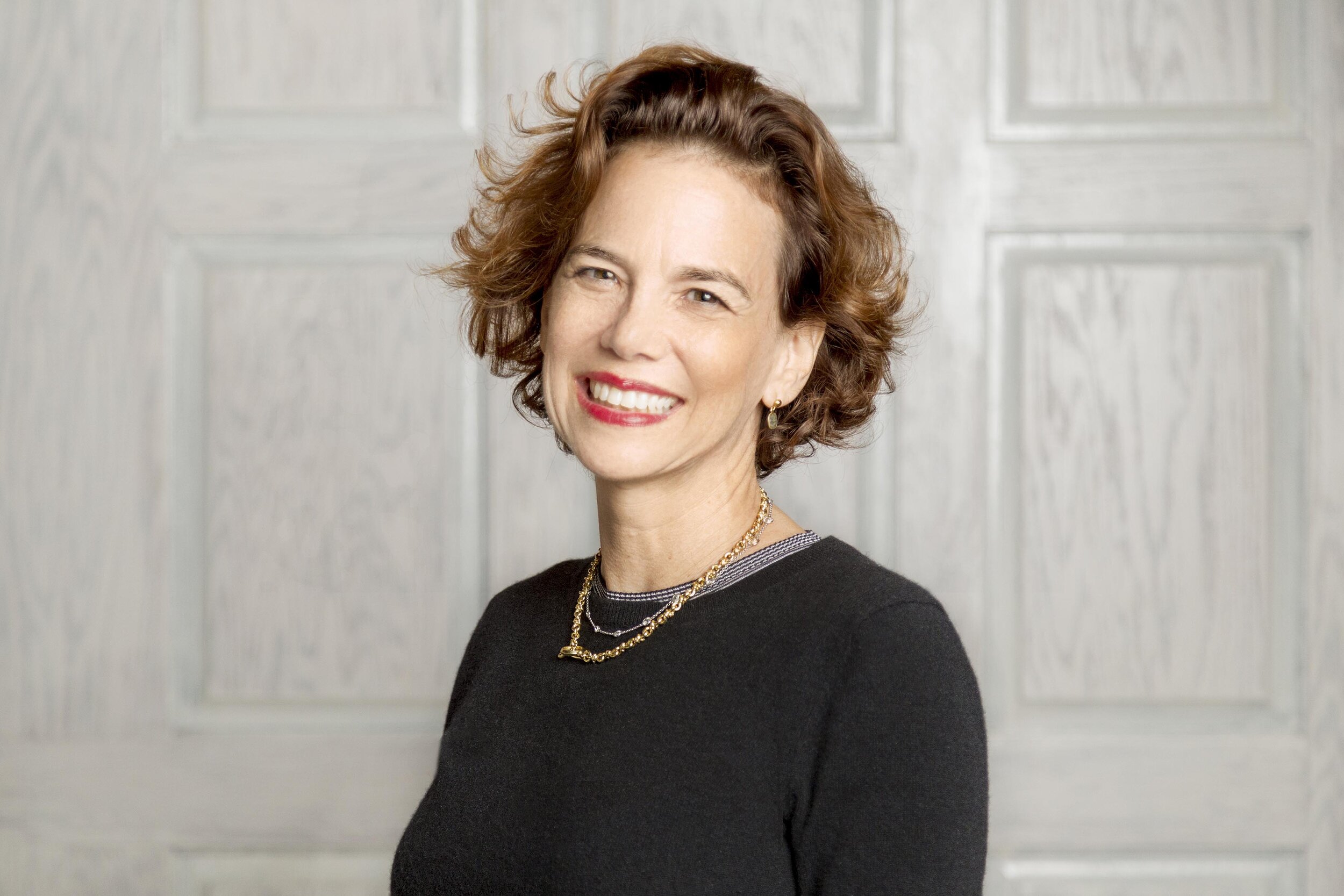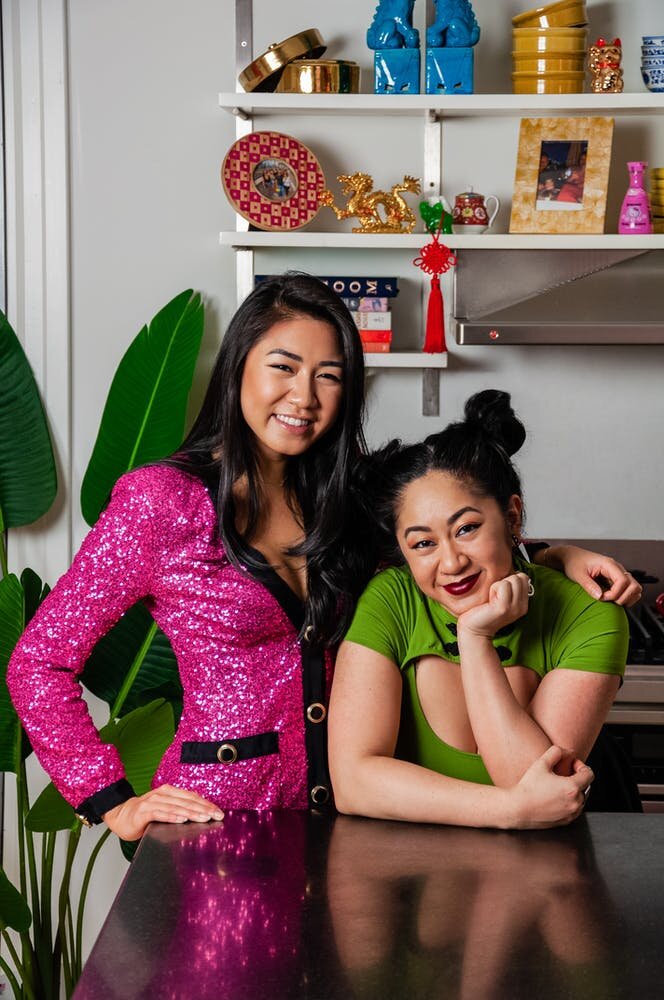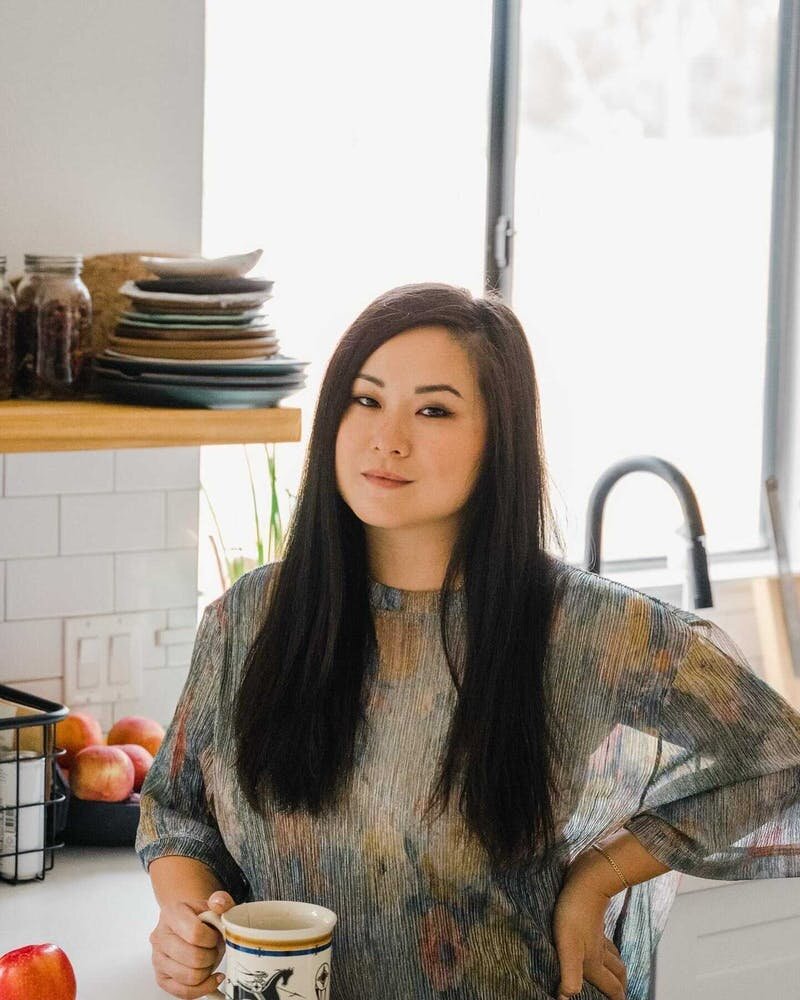Dana Cowin, founder of Giving Broadly and Speaking Broadly | photo courtesy of Dana Cowin
Strange as it may seem, Dana Cowin — who led Food & Wine magazine for 21 years as editor in chief, and who has been one of the most influential people in food in America this century — does not count her skills in the kitchen among her strengths.
“I’ll be honest,” she famously wrote in the introduction to her 2014 cookbook Mastering My Mistakes in the Kitchen, “I am not a great cook.”
So how does someone who has long been devoted to eating well manage to put excellent food on the table every night for her family during a pandemic? She collaborates with interesting chefs and food makers to put the flavors she craves in bottles and boxes — cooking shortcuts, if you will.
That’s part of the idea behind the project Cowin has just launched: Giving Broadly. It’s a guide that curates and spotlights amazing products from women-owned artisan brands. The Giving Broadly website functions as a shop for those ingredients and other edibles as well as a place where the remarkable women behind them share their stories. Some of those entrepreneurs have been helped by Hot Bread Kitchen, an organization that helps immigrant women incubate food businesses; Cowin sits on Hot Bread Kitchen’s board.
We caught up with Cowin on the phone for a Q & A to hear more about the project. She, her husband and their two children (one home from boarding school, the other home from college) had spent most of the pandemic at their home in Upstate, New York. When we spoke, Cowin was back in New York City.
Cooks Without Borders: Tell me about Giving Broadly — where did it come from? How did you get the idea?
Dana Cowin: For the first time in my entire life, I found myself at the stove mostly every night. I found that in order to make it great and interesting to me and to everyone around me, I really needed some help.
There are cookbooks, yes, and actually I love cookbooks. But I also like shortcuts because as someone who’s not an amazing cook, I really need the shortcuts to flavor. So this first great discovery during Covid was Omsom. Omsom was started by two sisters — Kim and Vanessa Pham — who have put the flavors of Southeast Asia essentially into packets. I would be craving larb, and there would be the packets, and I would follow the instructions, use the little flavor packets, and put it on the table and be like oh, my goodness — I actually feel like I’m at a restaurant! I, Dana Cowin, made a restaurant-tasting meal, which has often been somewhat beyond my reach.
Omsom founders Vanessa Pham (left) and Kim Pham | Photo courtesy Giving Broadly
So my not being a cook definitely led me to finding shortcuts, and then my desire to spotlight women entrepreneurs and learn their stories led me in a very particular direction, as I was trying to find great condiments or great products to make cooking in the last nine months more interesting and more exciting.
CWB: Very cool.
DC: The larb was so well received that I actually went online and bought a second starter kit, just so I wouldn’t run out. What I found — and I think this is what most real cooks do — is that the first time I followed the directions. But the second time I just took the notion of the flavors that were inside those packets and used it on something else. Like instead of doing it with ground pork, I added the flavor to potatoes, or something that was not something they had recommended, which gave me a lot of freedom.
Fauzia Abdur-Rahman, founder of Fauzia’s Heavenly Delights | Photo courtesy of Giving Broadly
I sort of rationed my Omsom, and I wanted to try different things, so I ordered Fauzia’s Jerk Seasoning. Fauzia Abdur-Rahman is a street vendor in NYC who has Fauzia’s Heavenly Delights; she has been on the street making her food for 25 years, which is quite extraordinary. She partnered with Hot Bread Kitchens and bottled her jerk seasoning.
To me part of the idea behind Giving Broadly and my own quest for change in the kitchen was to bring back memories of travel, or bring back memories of restaurants. That was what I was in search of. Having this really great jerk seasoning brought me right back to the beaches of Jamaica, which I love — the idea of smoke and the outdoors and the music and the heat and just that whole vibe. I love a condiment that can do that to you.
CWB: That’s amazing that you can get all that in a condiment.
DC: The thing about jerk is that it’s not hard to do, but it involves all these things that I don’t know if I have in pantry, and if I do, they are aging. I like the fact that all things in Fauzia’s are fresh. She has a great story about how when she first got in the business, she was buying her spices from a big wholesaler, and her mother tasted the spices and was like, “this is awful. We are never buying from them again. This does not taste like home.” And so her spices are definitely fresher than mine.
Diaspora Co. founder Sana Javeri Kadri | Photo courtesy Giving Broadly
CWB: You also have someone doing single-origin spices — Sana Javeri Kadri. Tell me about her.
DC: Amazing. What’s so remarkable about Diaspora Co. and Sana is how devoted she is to finding exactly the right farmer. She says it can take her anywhere from two months to two years to find the right person for the right spice. I’m in love with her pepper — it has so much flavor. Again, it makes you realize how long the pepper you generally have in your spice grinder has been sitting on the shelf before it got to your house, and how flavor does degrade over time.
Sana often does a pre-order, so I’ll pre-order the pepper because she pays attention and respects the season — because pepper has a season, it has a picking time and I imagine it has a curing time; it has a time during which she can import it. She’s not getting old pepper, and that’s part of the respect for the ingredient.
She’s also investing in the community, and if there are farmers she feels need more time, she can work with them in order to get them ready to produce and to ship to her. So she’s very, very, very thoughtful about who she’s pairing up with.
CWB: I love that you’re helping small businesses bring what they’re doing to a much wider audience than they’d otherwise have just in their own geographic communities.
Krissy Scommegna, founder of Boonville Barn Collective | Photo by Gilbert Bages
DC: Every single person whom I spoke with, I asked “what is the biggest challenge you’ve encountered in your entire time as an entrepreneur?” And almost to the last person, they said COVID has presented enormous challenges, because of disruption. And in every case it isn’t because they don’t have an audience.Their supply chains are disrupted, their ability to produce sometimes is disrupted, and they’ve had to pivot, and so there are women in this guide who were mostly selling to restaurants, and of course those accounts dried up and so they had to pivot.
I’m thinking of Boonville Barn Collective’s Krissy Scommegna, with her Piment d’Ville — which is sort of a pun on piment d’Espelette. Her dried ground peppers were mostly going to restaurants. And she had to pivot; she had to find a new audience.
I think in each case these women feel they’re stronger for it, but it’s been a tremendous challenge. So going into this project, I really wanted to find people who would benefit from the exposure. To be fair, there are some who have had tremendous exposure, but the bulk of the people on the site don’t have as much PR or visibility and helping them through COVID and sharing their stories during this time I feel is very important.
Fly By Jing founder Jing Gao | photo by Sarah Ellefson
There are many parts of the story. Many of them are really fighting for recognition for their culture. Jing Gao, who has Fly By Jing, which is an extraordinary company, is creating a Sichuan Chili Crisp that is I actually eat standing up at the fridge, I can’t even get to put it on top of something, it’s so addictive. But the journey for her was really about how people perceive Chinese ingredients and their value. And how that in turn made her value herself. Through this project, Fly By Jing, she changed her name back to her birth name from Jenny, which she had adopted living in Europe. Now this condiment is sort of everything to her because it’s made with beautiful ingredients from Sichuan, and it’s brought so much pride to her culture.
So there are many ways in which I was looking at people I wanted to highlight.
Of course the food has to be great, but I also wanted it to stand for something that was important — both to the individual but also in the conversation around food today.
CWB: Dana, thank you so much for taking the time to chat with me and tell us about these incredible artisans and their fabulous products!
A number of them are available at the Cooks Without Borders Holiday Pop-Up Gift Shop. You can find them all (along with many others) at Giving Broadly, and you can listen to Dana Cowin’s extraordinary interviews with brilliant, remarkable women in the food world at her podcast, Speaking Broadly.






